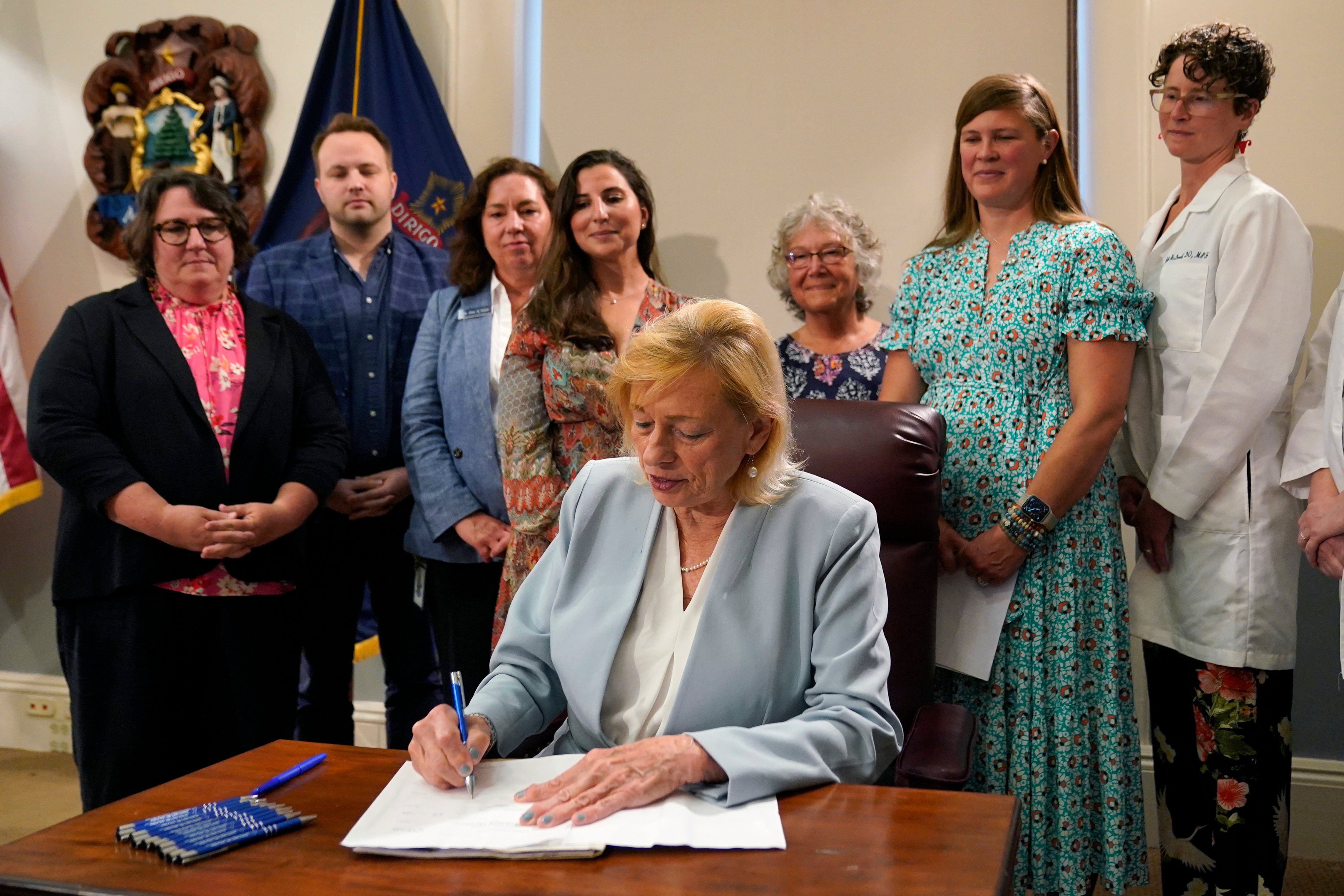Opponents of Maine's new abortion law won't seek to nullify it through a referendum
Groups opposed to Maine's new law expanding access to abortions won’t attempt to nullify the new statute through a so-called People’s Veto referendum

Groups opposed to Maine's new law expanding abortion access won't attempt to nullify the statute through a so-called People's Veto referendum.
Republican Rep. Laurel Libby, leader of the Speak Up for LIFE group, said Wednesday that allies decided that the costs of collecting signatures and running a campaign represented too big of a hurdle. Instead, the groups intend to focus on electing candidates who are opposed to abortions.
“At the end of the day, we want to put our effort into the most effect place possible,” Libby, a Republican from Auburn, told The Associated Press. That means flipping legislative seats, she said, particularly in the Maine House.
The bill signed into law by Democratic Gov. Janet Mills last month allows abortions at any time if deemed medically necessary by a doctor, making the law one of the nation’s least restrictive. The previous law, the Reproductive Privacy Act of 1993, banned abortions after a fetus became viable outside the womb, at roughly 24 weeks, with an exception if the patient’s life is at risk.
Wednesday marked the deadline to notify state officials of a People’s Veto, a constitutional provision allowing citizens to repeal legislation through a statewide vote. To move forward, more than 67,000 signatures would have been needed.
Mills presented the bill expanding abortion access after a Yarmouth woman came forward with her story about having to travel to Colorado for an abortion after learning at week 32 of her pregnancy that her unborn son had a fatal condition that would not allow him to survive.
Critics said the law’s language was broader than necessary if the goal was simply to allow abortions in instances of a fatal fetal anomaly later in a pregnancy. They also said the bill put too much power in the hands of doctors.
Passage was considered a foregone conclusion in the Legislature where Democrats controlled both chambers, and there were enough co-sponsors to ensure passage. But the vote was close in the House after emotional testimony.
Beside Maine, six states leave the decision to get an abortion to doctors and their patients, without restrictions. They are Alaska, Colorado, New Jersey, New Mexico, Oregon and Vermont, plus Washington, D.C.
___
Follow David Sharp on X, the platform formerly known as Twitter, @David_Sharp_AP
Bookmark popover
Removed from bookmarks